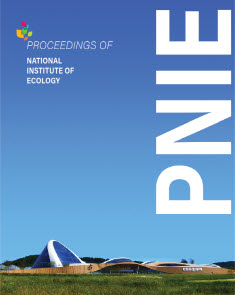 ISSN : 2765-2203
ISSN : 2765-2203
Alien Hitchhiker Insect Species Detected on International Vessels Entering Korea in 2023

Jae Ung Seol (Eco-Friendly Agro-Bio Research Center, Jeonnam Bio Foundation)
Deuk-Soo Choi (Quarantine Technology Institute Inc.)
Abstract
We conducted a monitoring study on hitchhiker insect pests aboard international vessels entering Korea in 2023, where we collected 562 individuals from 247 vessels. Of these, 512 individuals were identified as 260 species across 66 families in eight orders, while the remaining 50 individuals were classified at the family level. From the survey of the distribution of these 260 species (512 individuals) identified at the species level, 25 species (39 individuals) across 18 families of six orders were recognized as not-distributed species in Korea. This group included three regulated species (five individuals), Oryctes rhinoceros (Scarabaeidae, Coleoptera), Oecophylla smaragdina (Formicidae, Hymenoptera), and Solenopsis invicta (Formicidae, Hymenoptera) which are listed by the Animal and Plant Quarantine Agency of Korea. Accordingly, continuous quarantine inspections on vessels from native regions are necessary to prevent the entry of these 25 non-distributed species confirmed in this study, in addition to enhancing monitoring around domestic port entry points. As part of the quarantine inspection, we have provided detection information on these 25 non-distributed species in Korea.
- keywords
- Hitchhiker, Non-distributed species in Korea, International vessel, Monitoring, Quarantine inspection
- Submission Date
- 2024-10-12
- Revised Date
- 2024-10-23
- Accepted Date
- 2024-10-24
- 89Downloaded
- 258Viewed
- 0KCI Citations
- 0WOS Citations

